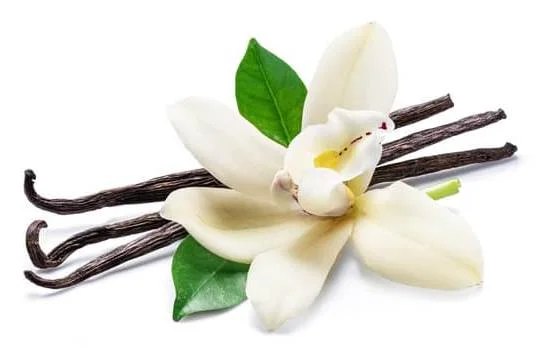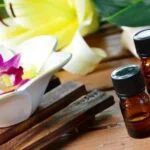Are you struggling to get a good night’s sleep? Can aromatherapy make you sleep better? Aromatherapy, the practice of using essential oils for therapeutic benefit, has been gaining popularity for its potential impact on sleep and relaxation. In this article, we will explore the science behind aromatherapy and its effects on sleep, popular essential oils for promoting better sleep, how to use aromatherapy effectively, as well as research and studies on the topic.
Aromatherapy has been used for centuries as a natural remedy for various health issues, including stress, anxiety, and sleep problems. The use of aromatic plant extracts in massage or baths is believed to promote physical and psychological well-being. With our busy and stressful lifestyles, many people are turning to alternative therapies like aromatherapy in search of better sleep and improved overall health. But can aromatherapy really make a difference when it comes to getting a restful night’s sleep?
In this comprehensive guide, we will delve into the scientific evidence behind the effects of aromatherapy on sleep. We will also discuss popular essential oils that are known for their relaxing and sleep-inducing properties.
Additionally, we will provide practical tips on how to incorporate aromatherapy into your bedtime routine for maximum effectiveness. Whether you’re a novice or an experienced user of essential oils, learning about the potential benefits and risks of aromatherapy can help you make informed decisions about using it as a tool for better sleep.
The Science Behind Aromatherapy and Its Effects on Sleep
The use of aromatherapy for sleep has been gaining popularity as more and more people are turning to natural remedies for better sleep. But what is the science behind aromatherapy and its effects on sleep? Aromatherapy involves the use of essential oils extracted from plants to promote physical and psychological well-being.
When inhaled, these essential oils can have a direct impact on the limbic system, which is the part of the brain that controls emotions and memory. This can help to reduce stress and anxiety, two common factors that can disrupt sleep.
One study published in the journal Complementary Therapies in Medicine found that inhaling a blend of lavender, Roman chamomile, and neroli essential oils resulted in improved sleep quality among participants with insomnia. Another study in the Journal of Alternative and Complementary Medicine found that inhaling a lavender essential oil may reduce heart rate and improve mood during sleep.
It’s important to note that while there is some scientific evidence supporting the use of aromatherapy for better sleep, more research is needed to fully understand how different essential oils affect sleep quality. However, many people have reported positive experiences with using aromatherapy for sleep, leading to increased interest in this natural approach to improving sleep quality.
Popular Essential Oils for Sleep and Relaxation
When it comes to using aromatherapy for sleep and relaxation, essential oils play a crucial role in promoting a restful night’s sleep. These oils contain natural properties that can help calm the mind and body, leading to improved sleep quality. Here are some popular essential oils that are commonly used for sleep and relaxation:
- Lavender: Known for its soothing and calming properties, lavender oil is often used to promote relaxation and ease anxiety, making it an excellent choice for bedtime use.
- Chamomile: Chamomile oil is well-known for its sedative effects, which can help induce a sense of calmness and aid in better sleep.
- Sandalwood: This woody-scented oil has been traditionally used to promote relaxation and create a tranquil atmosphere, making it beneficial for improving sleep quality.
- Bergamot: With its citrusy aroma, bergamot oil can help alleviate stress and anxiety, making it a valuable option for promoting relaxation before bedtime.
These essential oils can be used individually or combined to create personalized blends that cater to individual preferences and needs. Whether diffused, applied topically, or added to bathwater, incorporating these essential oils into your nightly routine can contribute to a more restful and rejuvenating sleep experience.
In addition to their aroma-therapeutic benefits, these essential oils also have potential health benefits beyond promoting better sleep. For instance, some studies suggest that certain essential oils may have anti-inflammatory or antimicrobial properties when used topically or inhaled.
Keep in mind that individual responses to aromatherapy may vary, so it’s important to find the right combination of essential oils that works best for you. Overall, with their relaxing properties and potential health benefits, these popular essential oils offer promising potential for improving sleep quality through aromatherapy.
How to Use Aromatherapy for Better Sleep
Aromatherapy is a natural and holistic approach that uses essential oils to promote relaxation, reduce stress, and improve sleep. There are several ways to incorporate aromatherapy into your bedtime routine to help you get a better night’s sleep.
One popular method of using aromatherapy for better sleep is through the use of an essential oil diffuser. These devices release the aroma of the essential oils into the air, allowing you to breathe in the beneficial properties of the oils as you relax and prepare for sleep. Some studies have shown that diffusing lavender essential oil in the bedroom can lead to improved sleep quality and duration.
Another way to use aromatherapy for better sleep is by applying diluted essential oils directly to the skin. This can be done through massage, adding a few drops of oil to a warm bath, or using a roll-on oil blend on pulse points. For example, applying a diluted chamomile essential oil behind the ears or on the wrists can help promote relaxation and calmness before bedtime.
Additionally, creating a relaxing atmosphere with aromatic candles or room sprays infused with calming essential oils can also contribute to better sleep. By surrounding yourself with soothing scents, you can signal to your body that it is time to wind down and prepare for rest. Whether it’s through inhalation or skin application, aromatherapy has been shown to have positive effects on promoting better sleep quality.
| Aromatherapy Method | Benefits |
|---|---|
| Essential Oil Diffuser | Improves sleep quality and duration |
| Diluted Essential Oils on Skin | Promotes relaxation and calmness before bedtime |
| Aromatic Candles/Room Sprays | Creates a relaxing atmosphere for better sleep |
Research and Studies on Aromatherapy and Sleep
Scientific Evidence
There have been several studies conducted to examine the effects of aromatherapy on sleep. One study published in the Journal of Alternative and Complementary Medicine found that participants who used lavender essential oil before bedtime experienced improved sleep quality compared to those who did not use the oil. Another study in the Journal of Clinical Sleep Medicine suggested that a combination of lavender, Roman chamomile, and neroli essential oils can help improve sleep quality in patients with coronary artery disease.
How Aromatherapy Works
The scent molecules from essential oils can stimulate the olfactory system, which is linked to the limbic system in the brain. The limbic system plays a key role in emotions, behaviors, and long-term memory, and it also regulates stress response and relaxation. This interaction between the olfactory system and the brain may explain how aromatherapy can positively impact sleep by promoting relaxation and reducing stress levels.
The Role of Different Essential Oils
Various essential oils have been studied for their potential effects on sleep. In addition to lavender, other popular choices include bergamot, ylang-ylang, and sandalwood. Each essential oil has unique chemical properties that contribute to its potential sleep-inducing effects. For example, bergamot is known for its uplifting citrus scent that may help alleviate anxiety and promote relaxation. Meanwhile, ylang-ylang is believed to have sedative properties that can help calm the mind and body before bedtime.
As more research continues to emerge, it becomes increasingly evident that aromatherapy
Personal Experiences With Aromatherapy for Sleep
Positive Experiences
Many individuals have reported positive experiences with using aromatherapy to improve their sleep quality. For instance, some people have found that diffusing lavender essential oil in their bedroom before bedtime has helped them relax and fall asleep more easily. Others have shared that using a few drops of chamomile oil on their pillow has led to a deeper and more restful night’s sleep. These personal anecdotes suggest that aromatherapy can indeed have a positive impact on sleep.
Negative Experiences
However, not all individuals have had success with aromatherapy for sleep. Some people may find certain scents to be too overpowering or irritating, which can actually disrupt their sleep instead of promoting relaxation. Additionally, it is important to note that individual responses to aromatherapy can vary widely, and what works for one person may not work for another. It is essential for individuals to experiment with different essential oils and methods of use to determine what works best for them.
Tips for Success
For those interested in trying aromatherapy for better sleep, it is important to keep in mind that consistency and patience are key. It may take some time and experimentation to find the right combination of essential oils and application methods that work best for you.
It can also be helpful to create a calming bedtime routine that incorporates aromatherapy, such as dimming the lights, playing soothing music, and practicing deep breathing exercises while enjoying the scents of your chosen essential oils.
Potential Risks and Precautions of Using Aromatherapy for Sleep
Aromatherapy, when used correctly, can be a safe and effective way to promote better sleep and relaxation. However, it is important to be aware of the potential risks and take necessary precautions when using essential oils for this purpose. Here are some factors to consider:
1. Skin Sensitivity: Some essential oils can cause skin irritation or allergic reactions in certain individuals. It’s important to always dilute essential oils with a carrier oil before applying them to the skin. Performing a patch test on a small area of skin can also help determine if you may have any adverse reaction.
2. Inhalation: Inhaling concentrated essential oils directly from the bottle or diffuser for extended periods of time can lead to respiratory issues or headaches in some people. It’s best to use aromatherapy in well-ventilated areas and avoid prolonged exposure.
3. Interactions with Medications: Certain essential oils can interact with medications, particularly those that are metabolized by the liver. If you are taking any medications, it’s advisable to consult with a healthcare professional before using aromatherapy for sleep.
4. Quality of Essential Oils: Using low-quality or adulterated essential oils can diminish their effectiveness and pose potential health risks. It’s important to choose high-quality, pure essential oils from reputable sources to ensure safety and therapeutic benefits.
5. Children and Pets: Some essential oils are not suitable for use around young children or pets as they may be toxic or cause adverse reactions. It’s crucial to research which oils are safe for specific age groups and species before using them in a household with children or pets.
By being mindful of these potential risks and taking necessary precautions, individuals can safely incorporate aromatherapy into their sleep routine without compromising their health or well-being. As with any holistic approach, it’s always best to seek guidance from a qualified aromatherapist or healthcare professional when utilizing essential oils for sleep purposes.
Conclusion
In conclusion, the use of aromatherapy as a natural remedy for sleep has shown promising results. The science behind aromatherapy and its effects on sleep is grounded in the idea that certain essential oils can help to relax the mind and body, making it easier to fall asleep and stay asleep throughout the night. Popular essential oils such as lavender, chamomile, and sandalwood have been found to be especially effective in promoting relaxation and improving sleep quality.
Research and studies on aromatherapy and sleep have also provided evidence to support its effectiveness. Aromatherapy has been found to not only improve sleep quality but also reduce symptoms of anxiety and stress, which are common contributors to insomnia. Many people who have incorporated aromatherapy into their bedtime routines have reported positive experiences with falling asleep faster, experiencing fewer disturbances during the night, and waking up feeling more rested.
While there are potential risks and precautions associated with using aromatherapy for sleep, such as skin irritation or allergic reactions to specific essential oils, when used properly, aromatherapy can be a safe and effective tool for improving sleep. So, can aromatherapy makes you sleep better?
Based on the available evidence, it certainly seems that way. Whether it’s through diffusing essential oils, using a pillow spray, or adding a few drops of oil to a bath, incorporating aromatherapy into your bedtime routine may be worth considering if you’re looking for natural ways to improve your sleep quality.
Frequently Asked Questions
How Does Aromatherapy Induce Sleep?
Aromatherapy induces sleep by engaging the sense of smell and promoting relaxation. Scents like lavender, chamomile, and sandalwood can help calm the mind and body, making it easier to fall asleep.
What Essential Oils Put You to Sleep?
Essential oils that are known for their sleep-inducing properties include lavender, chamomile, bergamot, ylang-ylang, and sandalwood. These oils have soothing and calming effects that can promote a more restful sleep.
How Do You Sleep With Aromatherapy?
To sleep with aromatherapy, you can use essential oils in a diffuser or add a few drops to a cotton ball placed near your pillow. You can also mix the oils with a carrier oil and apply them topically to pulse points or the bottoms of your feet before bedtime for relaxation.

Are you looking for a natural way to improve your health and wellbeing?
If so, aromatherapy may be the answer for you.





